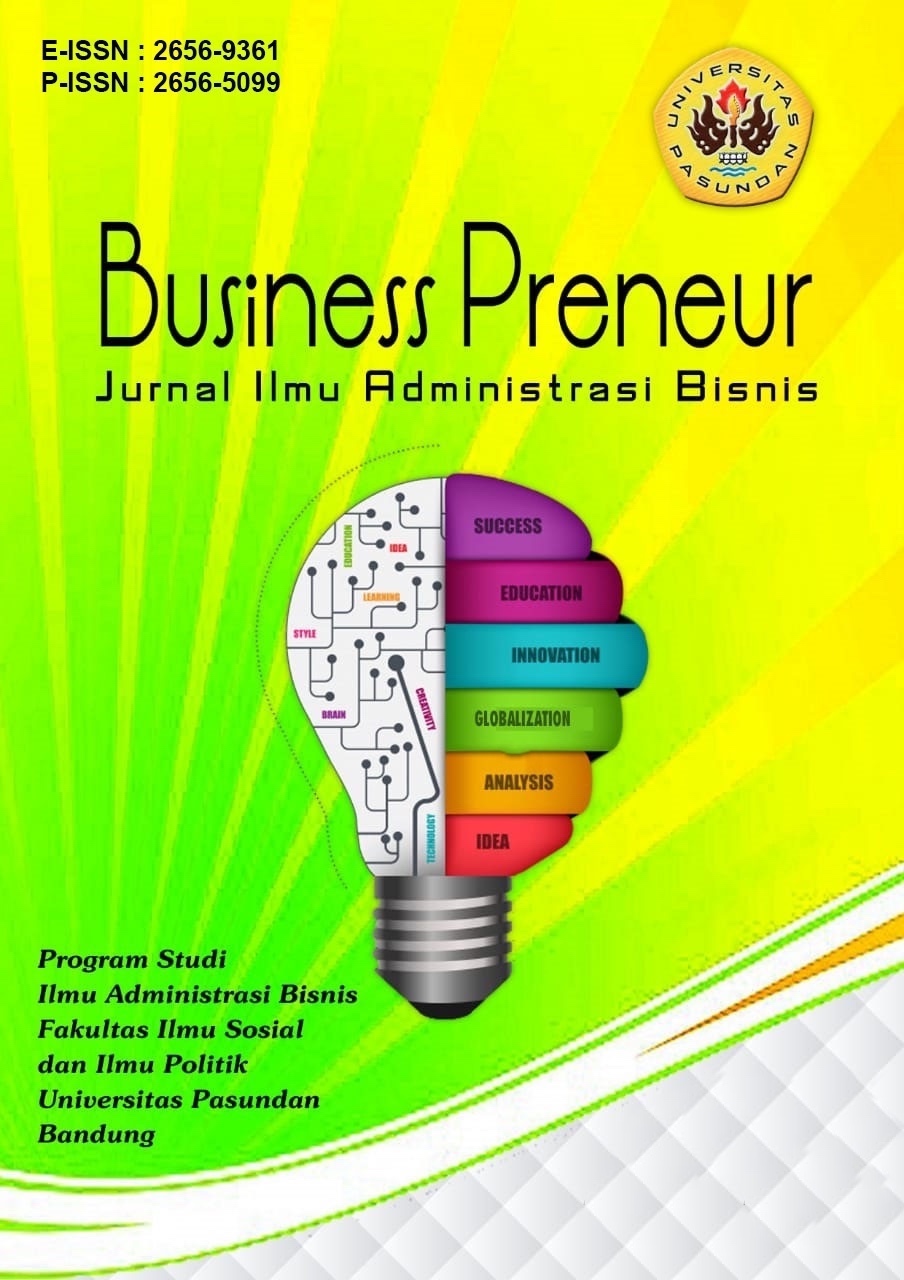PENGEMBANGAN USAHA KECIL MENENGAH EKONOMI KREATIF MELALUI UNIQLO NEIGHBORHOOD COLLABORATION
DOI:
https://doi.org/10.23969/bp.v6i1.10331Keywords:
: Neighborhood Collaboration, SMEs, : creative, economy, UNIQLOAbstract
Small and Medium Enterprises (SMEs) in the creative economy sector have great potential to drive local economic growth and enrich urban culture. However, there are still very few partnership programs carried out by international brands with SMEs. This article aims to evaluate the cooperation of multinational companies, through the UNIQLO neighborhood collaboration program can inspire creative economy SMEs to develop their business capacity. The PESTEL approach (Political, Economic, Socio-Cultural, Technology, Environmental, Law) is applied to identify external factors that influence the success of collaboration programs. The results of the analysis show that (1) the regulatory framework and government policies play a significant role; (2) the ability of purchasing power and access to finance to be supportive from an economic aspect; (3) the acceptance of creative economy SME products is a key factor in socio-cultural success; (4) technology support in operationalization and marketing plays a positive role; (5) a positive image of environmentally friendly SME products is an added value; (6) Intellectual property rights support the legalization aspect. Although the UNIQLO neighborhood program is still relatively new, it has had a positive impact on creative economy SMEs. The challenge is to develop a sustainable strategy for the optimization of this cooperation program through strengthening the capacity of SMEs, collaboration with educational institutions and industry associations, and effective marketing efforts.










